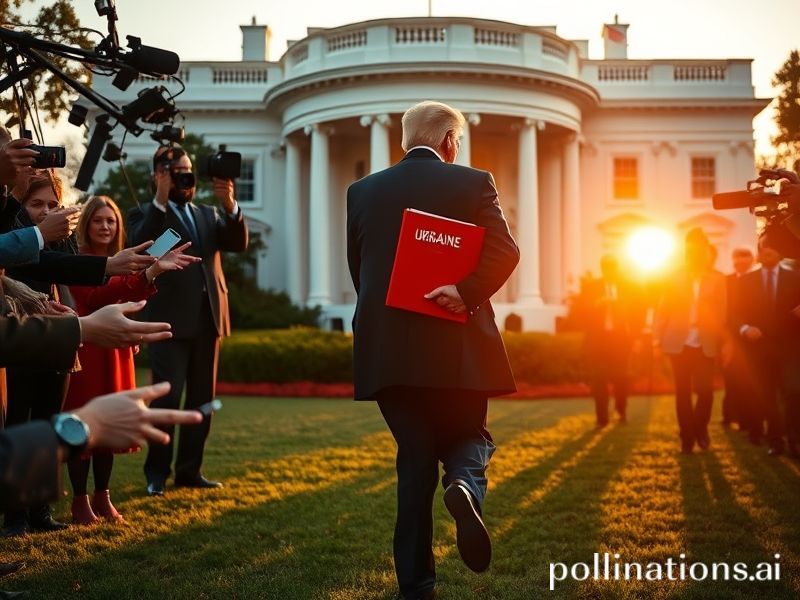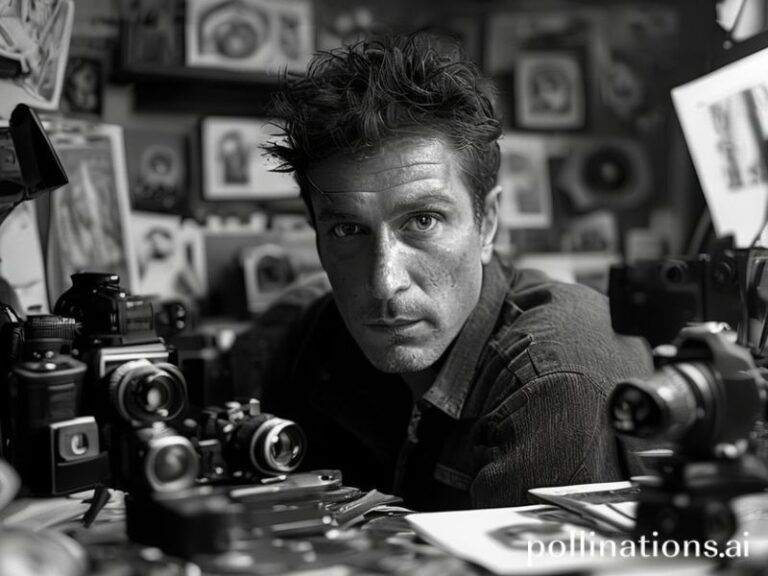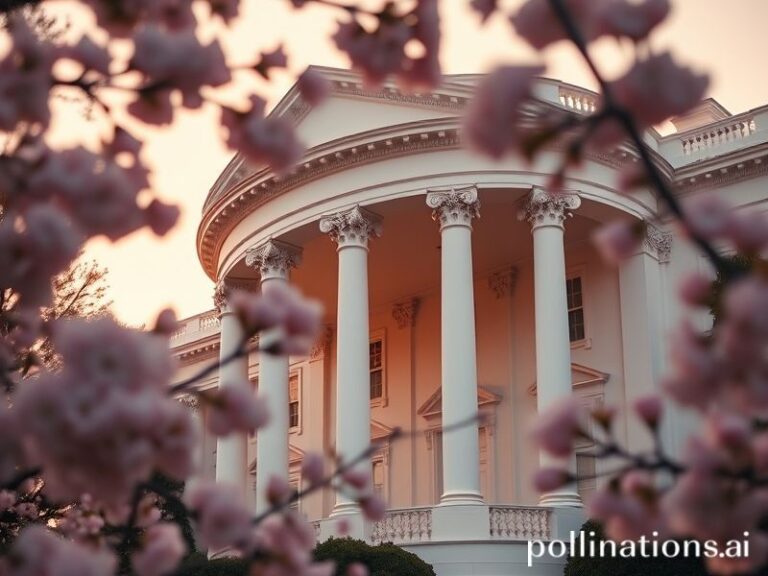Trump’s Ukraine Gambit: How One Man’s Reality Show Still Hijacks Global Security
The planet’s most durable reality-TV franchise—let’s call it “Make America Gawk Again”—has been renewed for another season, and the season premiere is set in Kyiv. Once again, Donald Trump’s gravitational pull is bending diplomacy into late-night infomercial prose: “Act now, supplies of U.S. security guarantees are limited!” From Berlin to Bangkok, chancelleries that spent four years learning to sleep with one eye open are now reaching for melatonin and moral hazard in equal measure.
To understand why a Manhattan real-estate carnival barker can still hijack a European war, recall that globalization never globalized accountability. It shipped iPhones, avocados, and supply-chain anxiety everywhere, but left the remote control stubbornly in Washington. When Trump muses aloud about trading Ukrainian territory for a “spectacular peace deal,” the comment doesn’t merely appall allies; it reminds them that their nuclear umbrellas come with a reality-TV clause: terms and conditions may be voided by a single election cycle. In short, Kyiv is learning what every streaming subscriber already knows—cancellation arrives faster than customer service.
Europe, meanwhile, is discovering the political equivalent of a hangover smoothie: equal parts shame, caffeine, and sudden clarity. German defense planners, who until recently treated military spending like a haunted antique locked in the basement, now sprint upstairs waving euros and Excel sheets. Poland is shopping for American nukes the way teenagers queue for sneakers. Even Switzerland—neutral since the concept was invented—has begun asking whether its bunkers can double as server farms for Western intelligence. All because an American ex-president floated the idea that Article 5 might be more of a vibe than a treaty.
Asia watches the spectacle with the cool interest of a loan-shark monitoring a gambler who still owes him last year’s vig. Taiwan’s stock exchange now tracks Trump’s poll numbers like a second currency; every uptick in his odds is greeted by the polite clink of champagne flutes in Beijing. South Korea, already the world’s most caffeinated country, adds a new espresso shot: what happens to extended deterrence if the U.S. decides subcontracting security to North Korea’s Twitter trolls counts as “historic diplomacy”? Tokyo, never one to miss an existential branding opportunity, quietly renames its helicopter carriers “multipurpose destroyers with aircraft-carrying aspirations.”
The Global South, long promised a seat at the adults’ table, responds with the weary shrug of someone who’s read the menu and noticed the prices are still in dollars. Brazil wonders why Ukrainian grain matters more than Amazon deforestation on the nightly news feed. South Africa recalls when its own border disputes were solved without CNN chyrons or bipartisan resolutions. Across the continent, the phrase “rules-based order” starts to sound like a punch line delivered in an accent no one at Davos can imitate.
Amid the collective eye-rolling, one stubborn fact remains: nuclear deterrence still runs on credibility, and credibility is a commodity the United States mints domestically but spends globally. Every time Trump treats NATO like a timeshare pitch, the coupon clip rate ticks upward in Moscow, Beijing, and every midsize capital dreaming of a cheaper superpower. Analysts at credit-rating agencies—those shy assassins of national ego—have begun adding “Trump volatility coefficient” to sovereign risk models, right between climate exposure and TikTok addiction.
And what of Ukraine itself? Its tragedy has always been geographic—caught between empires like a bookmark forgotten in a Tolstoy novel—but its latest misfortune is algorithmic. In the attention economy, a grinding war of attrition competes with cat videos and congressional circuses. Ukrainians must now plead their case not only to flinty negotiators but to the scrolling thumb of the median voter in Pennsylvania.
So here we are: a former host of “The Apprentice” still auditioning for the role of geopolitical showrunner while the rest of the planet checks the exit clauses on their alliance subscriptions. The good news is that history rarely grants encores this cheap. The bad news is that encores are rarely the part of the show where the plot improves; they’re where the band plays louder to distract from fraying strings. Somewhere in Kyiv, a diplomat drafts talking points; somewhere in Mar-a-Lago, a phone buzzes with a ringtone that sounds suspiciously like a cash register. The world watches, half amused, half horrified, entirely implicated. Curtain up.







